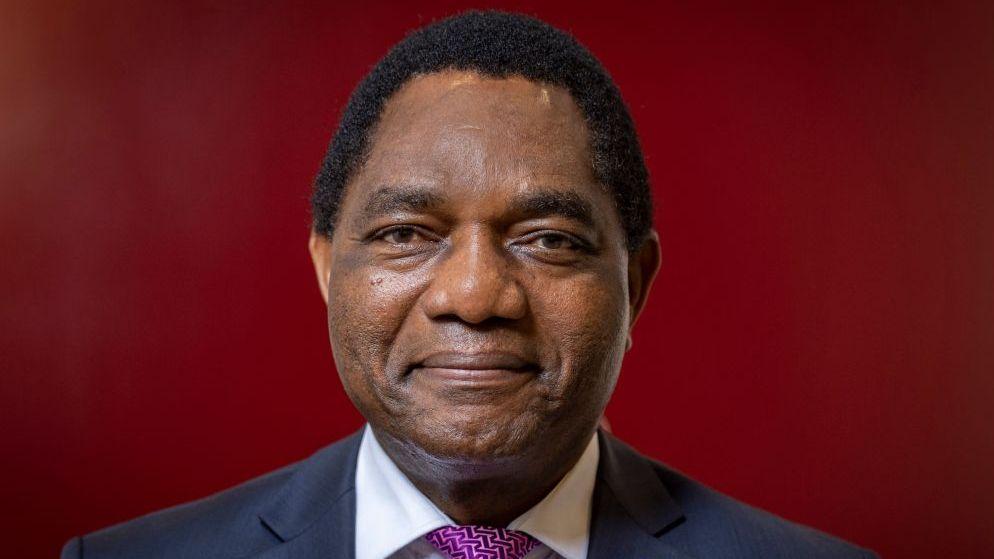In a shocking incident in Zambia, two individuals, Jasten Mabulesse Candunde and Leonard Phiri, have been arrested under accusations of being witchdoctors allegedly hired to bewitch President Hakainde Hichilema. The police in Lusaka, the capital city, released a statement highlighting the gravity of the situation, indicating that the men had been engaged to use supernatural charms with the intent to harm the president. This case sheds light on the deep-seated beliefs regarding witchcraft in Zambia, where many citizens harbor fears related to such practices, often seeing them as a powerful force influencing their lives.
The context of the arrests reveals a potential political subplot. The men were reportedly hired by Nelson Banda, the younger brother of Emmanuel “Jay Jay” Banda, a Member of Parliament (MP) who is currently in the spotlight due to serious legal troubles. Emmanuel Banda was recently arrested in Zimbabwe on robbery charges, which he firmly denies, and has since been eluding public scrutiny after allegedly escaping custody while awaiting trial. This background raises questions about the political motivations behind the charges, particularly given that the opposition Patriotic Front (PF) party, once led by former President Edgar Lungu, has claimed these allegations are a product of political persecution following Hichilema’s victory in the 2021 elections.
Upon their arrest, Candunde and Phiri were charged under Zambia’s Witchcraft Act, which outlines legal frameworks around witchcraft-related practices. Specific charges against them include “possession of charms,” “professing knowledge of witchcraft,” and “cruelty to wild animals.” During the police investigation, a range of “assorted charms” was recovered from the suspects, including a live chameleon, which signifies the bizarre and occult nature of their purported activities. This underscores the extent to which such practices are intertwined with cultural beliefs in the country.
Moreover, financial motives are also implicated in this case, as the suspects disclosed that they had been promised a substantial sum of money exceeding 2 million Zambian kwacha (around $73,000) upon the completion of their alleged mission against Hichilema. This detail brings to light the intersection of socio-economic factors and traditional beliefs, suggesting that financial incentives might be prompting individuals to engage in such illicit and dangerous practices. It also raises concerns about the lengths to which some may go in a politically charged environment.
Both Candunde and Phiri are currently awaiting trial, with the police assuring the public that they will soon face judicial proceedings. Their situation illustrates a precarious intersection of traditional beliefs and modern law in Zambia, where witchcraft holds significant cultural relevance but is also subject to legal scrutiny. As of now, the exact date for their court appearance remains undetermined, and they have yet to publicly address the serious allegations leveled against them.
The arrest of these two men not only highlights the pervasive belief in witchcraft but also serves as a reminder of the complexities surrounding political dynamics in Zambia. With charges of political motivation swirling around the case, especially regarding Nelson Banda’s connection to the ongoing political tensions, the situation reflects how witchcraft allegations can become entwined with the political landscape. This incident is likely to resonate within the broader public discourse on governance, traditional beliefs, and the rule of law in Zambia, inviting further scrutiny of the underlying motivations for such acts in a politically contested environment.

